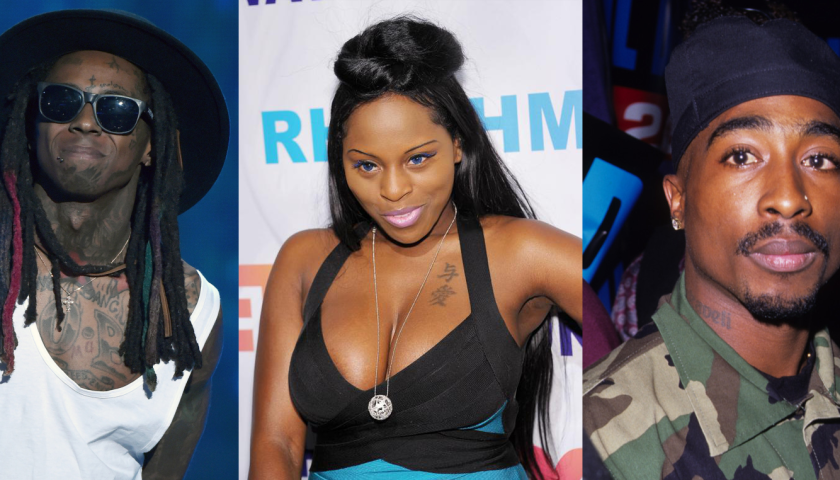Pedro Hernandez Avoids Same Fate As Kalief Browder At Rikers
How Pedro Hernandez Managed To Avoid The Same Fate As Kalief Browder
Will Pedro Hernandez be the rare exception to escape America’s legal system? Or will his case be the X-factor in the ongoing battle for prison reform?
The 17 year old, who was on New York’s Rikers Island for almost a year, is now free thanks to the Daily News’ Shaun King, the Robert F. Kennedy Human Rights advocacy organization, and hundreds of donors who donated toward Hernandez’s $105,000 bail.
The honors student’s story became national news when King labeled him the “new Kalief Browder” and spread word that Hernandez was going to lose a full academic scholarship to college because he could not post his bail.
In July 2016, the teen was charged with criminal possession of a weapon, criminal possession of a firearm, assault and reckless endangerment in connection with a shooting in his neighborhood. A private investigator spent over a year working to prove his innocence and claims to have security camera footage of Hernandez delivering groceries to his mother’s apartment at the time of the crime, according to New York’s WPIX.
The victim of the shooting told the NYPD he wasn’t sure who shot him in the leg. Still, Hernandez remained incarcerated until Wednesday, even after eight witnesses who were near the Bronx bodega where the shooting occurred told authorities Hernandez was not the shooter. They also claimed investigators attempted to coerce them into identifying the teen as the suspect after they said it wasn’t Hernandez, according to The New York Daily News.
Hernandez refused the court’s offer to take a plea deal and maintained his innocence despite Rikers’ notoriously rough conditions. But since he could not afford the $255,000 bail set in his case, he had to wait his case out on the inside. King’s story about Hernandez moved his 1.5 million social media followers to donate over $100,000 to Hernandez on the YouCaring crowd-sourcing site.
But they were still $150,000 short. Robert F. Kennedy’s daughter, Kerry Kennedy caught wind of the situation and reached out to support. Kennedy runs the social justice organization named for her late father, the beloved New York senator and former presidential favorite who was assassinated during his campaign in 1968.
After meeting with Hernandez’s family, the organization’s lawyers met with the judge on Pedro’s behalf. “People like Pedro are still on Rikers because they can’t purchase their freedom,” attorney Wade McMullen told the judge, according to WPIX. “Pedro has to come home immediately.’”
Bronx Assistant District Attorney David Slott mentioned Hernandez’s gang affiliation as a reason for the high bond, but as Carmelo Anthony saw first hand when he visited teens being held in Rikers’ juvenile unit in 2015, joining a gang is a matter survival for many inmates.
Rikers survivors described the island as an “upside down kingdom” where “everything that means something (in free society) doesn’t mean shit” in a PBS documentary titled Rikers.
Gary L. Heyward, author of the 2009 book Corruption Officer, gave a rare first-hand account of how things operate on Rikers Island. After almost a decade as a corrections officer, Heyward got two years for corrupt activity. He revealed that he participated in everything from pimping female guards out to inmates to smuggling drugs inside. He told Hot 97’s Ebro In The Morning that the book was “not for revenge,” but an attempt to make a living. “You go on the Internet, and everything I did, my crime, my record is right there on the Internet to prevent somebody from possibly giving me a job,” he said of the issues he faced after being released.
Whether the inmate is a crooked cop or promising Brooklyn rapper Bobby Shmurda, there doesn’t seem to be much justice for anyone who finds themselves in Rikers. Schmurda had been on Rikers since late 2014 until he was transferred to an upstate prison this April after another inmate tried to stab him. While at Rikers, Shmurda had 1.3 to four years added to his six-year sentence for weapons and conspiracy charges after he plead guilty to smuggling shanks inside to protect himself.
Whether it’s Jay-Z bailing out incarcerated fathers on Father’s Day or Colin Kaepernick giving out suits to young men going to court, it rarely feels like enough when the American justice system is designed from the bottom up to keep Black and brown men in bondage.
Even Shaun King, an essential ally in the public coup that got Hernandez free, is still part of the system that made his unjust incarceration possible. As an employee of the New York Daily News, King can’t help but also perpetuate the cycle that makes young men like Hernandez so vulnerable. From the media imagery that marked Hernandez’s appearance as criminal to the political and economic circumstances that introduced poverty and violence into the lives of many of Rikers’ inmates long before they were cuffed, it’s all connected; Like the fine line of power the creators of HBO’s The Wire drew from city hall to the projects. Once you see the big picture, and your own place in it, it can sometimes seem like an impossible situation to fix.
That’s why as hard as it is to get people to “get it,” it’s even harder to get them to do something about it. Hopefully, Hernandez’s story doesn’t fizzle as a rare victory for the forces of social justice. The people who told his story, donated his bond and argued on his behalf are truer heroes than modern athletes, entertainers and politicians. Hernandez’s story gives hope that social media can be an equalizing force for social justice.
SOURCE: The New York Daily News, WPIX
SEE ALSO:
New York City Renames Bronx Street To Honor Kalief Browder
Kalief Browder Film Documents Heartbreaking, But Necessary Truth
















